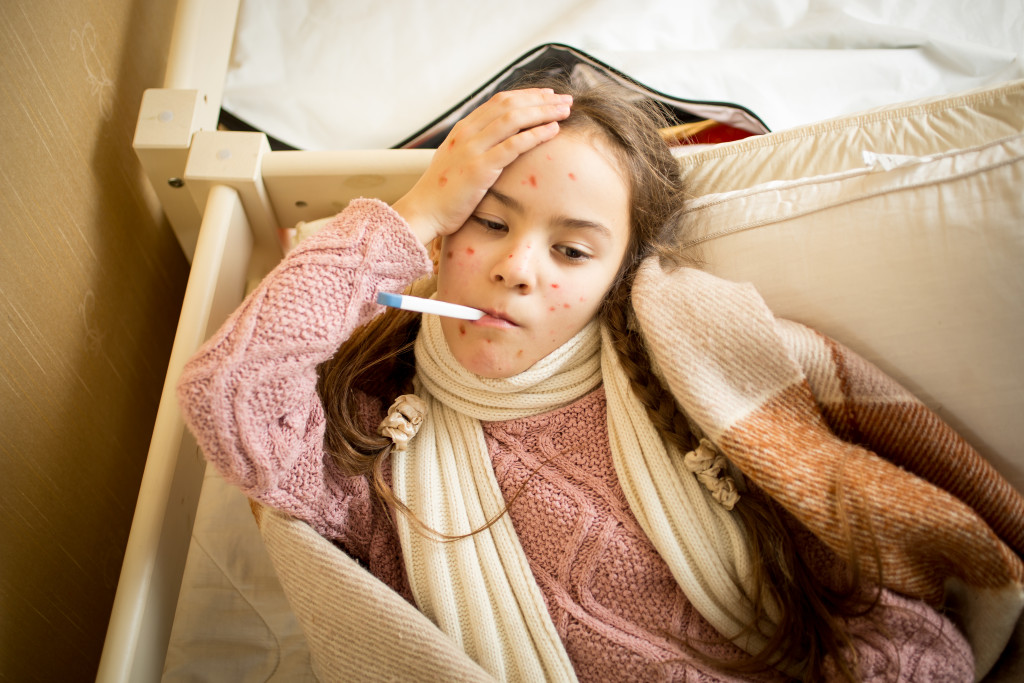As a parent, it is crucial to be aware of the most common bacterial infections in the United States. Understanding the symptoms and knowing when to seek medical attention can help keep your family healthy and avoid serious complications. Here are five of the most common bacterial infections in the United States:
Strep throat
Strep throat is a bacterial infection that causes inflammation and pain in the throat. Other symptoms may include fever, headache, and body aches. People usually get this bacterial infection because of contact with infected saliva or respiratory secretions. Strep throat can be treated with antibiotics, but it is essential to see a doctor confirm the diagnosis and prevent potential complications such as rheumatic fever.
Urinary tract infection (UTI)
A UTI is an infection in any part of the urinary system, including the bladder and kidneys. Symptoms may include frequent, painful urination and strong-smelling urine. Women are more likely to get UTIs because their urethra is shorter, making it easier for bacteria to enter the urinary system. Treatment typically involves antibiotics prescribed by a healthcare provider.
Pneumonia
Pneumonia is an inflammation of the lungs that can be caused by various types of bacteria, including Streptococcus pneumoniae and Haemophilus influenza. Symptoms may include fever, cough with mucus production, chest pain, and difficulty breathing. Pneumonia can be severe and life-threatening, especially in young or older adults. Therefore, it is essential to seek medical attention if you or your child experience symptoms of pneumonia. Simple medications will not be enough to deal with this virus.
MRSA
Methicillin-resistant Staphylococcus aureus (MRSA) is a bacterial infection resistant to certain antibiotics commonly used to treat staph infections. It can cause skin infections that appear as red, painful sores or boils, but it can also spread to the bloodstream and lungs, causing more severe illnesses. MRSA can spread through physical contact or contact with contaminated surfaces. Treatment typically involves antibiotics prescribed by a healthcare provider, and it is essential to complete the entire course of treatment to prevent the further spread of the infection.

Tuberculosis
Tuberculosis (TB) is a bacterial infection that primarily affects the lungs but can also affect other body parts. It is spread through the air when an infected person coughs or sneezes. Symptoms may include persistent cough with mucus production, chest pain, weight loss, fever, and night sweats. TB can be treated with antibiotics, but it is essential to see a healthcare provider for proper diagnosis and treatment to avoid complications and prevent the spreading of the infection to others.
Bacterial infections are common in the United States. However, the worse part is that your child can be exposed to these viruses. Here are some ways you can keep your child safe from these viruses.
Pediatric Services
If you notice that your child is experiencing any symptoms related to these infections, getting them the help they need is vital. You can visit your local kids’ clinic to get your child checked for a bacterial infection. The clinic should be able to treat your child and provide any necessary antibiotics.
Good hygiene
Teaching your child to wash their hands frequently can help prevent the spread of bacteria. Here are three tips to ensure that your children have proper hygiene:
Bath Once or Twice a Day
A good bath can remove skin dirt, sweat, and bacteria. Encourage your child to bathe at least once a day and twice if they have been exposed to dirt or sweat during physical activity.
Brush Teeth Twice a Day
Bacteria in the mouth can lead to infections such as strep throat. Make sure your children brush their teeth twice a day and floss regularly.
Trim Nails
Dirty and long nails can harbor bacteria. So it’s essential to keep your child’s nails clean and trimmed to prevent them from spreading infection through scratching or picking at their skin.
Avoid Cross Contamination
Cross-contamination occurs when bacteria from raw meat or unwashed produce are transferred to other foods, causing food poisoning. Avoiding cross-contamination is one way to keep your child safe from any disease. Here are some ways you can do that.
Proper Storage
Store raw meat and unwashed produce separately from cooked and ready-to-eat foods.
Wash Produce
Before serving or eating fruits and vegetables, wash them thoroughly with water to remove any bacteria on the surface.
Thoroughly Cook Meat
Cook all meats, including poultry and seafood, to their recommended internal temperatures to kill any potential bacteria. Use a food thermometer to ensure proper cooking temperatures.
Taking these precautions can help prevent your child from getting sick from bacterial infections. It’s important always to seek medical attention if you notice symptoms of illness in your child and practice good hygiene habits to keep them safe.
